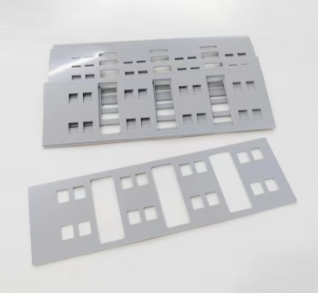Fireproof Composites: The Ultimate Solution for Modern Fire Safety
In today’s world, where fire hazards pose significant risks to life and property, Fireproof Composites have emerged as a vital solution for ensuring safety and protection. These advanced materials are engineered to withstand extreme temperatures, prevent flame propagation, and maintain structural integrity, making them an essential component in industries like construction, automotive, aerospace, and marine.

Fireproof composites are composed of fibers like glass, carbon, or aramid, combined with fire-resistant resins. This combination creates a durable, lightweight material that can endure harsh environments without compromising its performance. Unlike traditional materials that may ignite or weaken when exposed to fire, fireproof composites provide unmatched safety by delaying ignition and reducing the spread of flames.
The lightweight nature of fireproof composites adds another layer of practicality. In industries like aerospace and automotive, where weight directly impacts performance and efficiency, these materials offer a significant advantage. Their reduced weight does not compromise their strength or durability, making them a preferred choice in high-performance applications.
Durability is another defining feature of fireproof composites. These materials are designed to resist wear, impact, and environmental degradation while maintaining their fire-resistant properties over time. This makes them particularly suitable for demanding applications in industrial and commercial settings where long-term performance is critical.
In addition to their functional benefits, fireproof composites also provide excellent thermal insulation. This property ensures that heat is contained, protecting sensitive equipment and preventing fire from spreading to other areas. Their ability to act as a barrier against heat makes them ideal for applications such as building insulation and industrial equipment protection.
Fireproof composites find their use in numerous industries. In construction, they are commonly used for cladding, fire-resistant doors, and insulation panels, ensuring buildings comply with stringent fire safety regulations. In the automotive sector, these materials are integrated into components like dashboards and engine covers, providing enhanced safety in case of vehicle fires. The aerospace industry relies on fireproof composites for aircraft interiors, wing components, and insulation, ensuring passenger safety at high altitudes. Similarly, marine applications benefit from these materials in areas like ship interiors and structural elements.
Looking ahead, the demand for fireproof composites is expected to grow as industries increasingly prioritize safety and sustainability. Manufacturers are continuously innovating to improve the performance, cost-efficiency, and environmental friendliness of these materials. With their proven ability to combine safety with durability and practicality, fireproof composites are set to play an even more significant role in shaping safer environments in the future.
